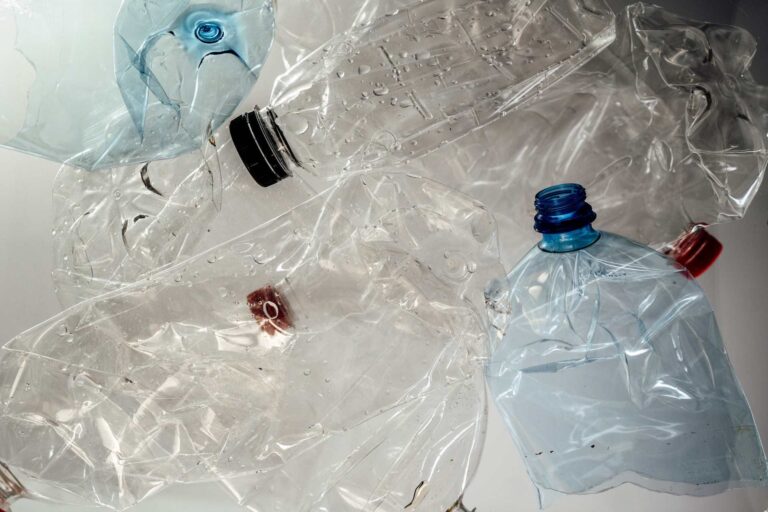Compostable plastic is a material, similar to plastic, but which is made from natural elements such as corn.
Placed in a compost system, compostable plastic, within 3 months decomposes almost completely (90%). It therefore has a much faster decomposition time than biodegradable plastic, which takes 6 months instead.
Compostable plastic is a certified plastic that complies with the European standard EN 134321 for packaging, and the European standard EN 14995 for all other manufactured goods other than packaging.
The decomposition of compostable plastic produces mature compost, which is rich in nutrients useful in agriculture.
Table of Contents
What materials are used to make compostable items?
Polylactic acid, or P.L.A., is a biopolymer derived from corn starch that is compostable according to European standard EN13432.
This material is used for the production of cups, spoons, finger-food monoportions, etc. Looking quite similar to plastic, this material is transparent and can withstand up to 35°C.
What is the difference between compostable plastic and bioplastic
Many people think that biodegradable is a synonym for compostable. In reality, these are two different concepts. Let us therefore clarify on this issue.
A product is defined as biodegradable if, in the presence of oxygen and under the action of microorganisms, it degrades into carbon dioxide, water and biomass. It can be made from fossil-derived plastics or have a natural origin.
In contrast, a product is defined as compostable if, through a composting process, it decomposes without adversely affecting the quality of the final compost.
In fact, therefore, what mainly differentiates a biodegradable material from a compostable one lies in the respective disposal methods and timing.
A compostable material, coming into contact with other organic residues, takes less than 3 months to disintegrate. For its part, however, 90 percent of a biodegradable material degrades within 6 months.
Read also: 10 great alternatives to single-use plastics for everyday use
UNI EN 13432 standard
According to Appendix II, European Compost Network, Position paper on compostable plastics, European Standard EN 13432:2000, in order to be certified as “biodegradable and compostable,” a material must have the following characteristics:
- degrade by at least 90% in 6 months in a carbon dioxide-rich environment;
- disintegrate at least 90% into fragments smaller than 2 mm within 12 weeks in contact with organic materials.
Once these 2 laboratory tests have been passed, the “compostable plastic” artifact can apply for the “Ok compost” or “Compostable Cic.” label for the issuing by the appropriate certifying bodies.
How compostable plastics are recycled
Degrading within a few weeks, compostable plastic is processed in composting plants along with organic waste. Therefore, bags and containers made of this material can be safely thrown into the wet waste bin.
In order to avoid contamination, non-compostable plastics are discarded from the rest of the waste before being fed into the plant.
But in order to do this, demanding actions are put in place on several fronts. And there is of course also the risk that during this pre-sorting some portions of wet waste and compostable plastics that could safely be recycled are also removed.
Read also: EU plans to stop plastic packaging: only recycling and reuse allowed












